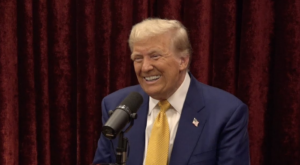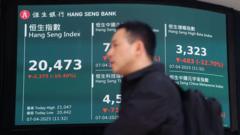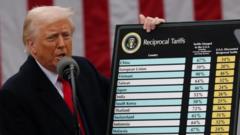In announcing widespread tariffs, former President Trump has stirred debates about the future of free trade, drawing parallels to significant historical events like Brexit. Economists ponder whether the world can navigate the changing landscape of trade without the U.S. at its helm.
The Impact of Trump’s Tariffs on Global Trade Dynamics

The Impact of Trump’s Tariffs on Global Trade Dynamics
An analysis of former President Trump’s tariff policies and their potential effects on international trade and economic relations.
Former President Donald Trump's announcement of sweeping tariffs targeting over 100 countries prompts significant questions about the future of global trade dynamics. Drawing comparisons to historical events, such as Britain's exit from the European Union, Trump's tariffs mark a pivotal shift in the U.S. stance towards free trade, potentially reshaping relationships across the globe.
On a day commonly referred to as his "liberation day," Trump’s policy reflects a retreat from established trade agreements, creating a seismic divide within the international economic landscape. Experts highlight that while the immediate impacts of these tariffs may be tumultuous, the long-term trajectory of free trade could prove more resilient. Economists like Eswar S. Prasad from Cornell University argue that, despite a downturn in unfettered free trade ambitions, the intrinsic benefits of trade may galvanize other nations to continue collaborative economic efforts.
The effectiveness and permanence of Trump's tariffs remain uncertain. His approach has not only isolated the U.S. but has also sparked discussions worldwide about alternative pathways to maintain trade liberalization. As the experience of the European Union demonstrates, even significant disruptions can lead to new forms of cooperation and alliance, underscoring a potential resilience against the prevailing norms.
As nations grapple with the aftermath of these tariffs, the global economy stands at a crossroads, balancing between self-interest and the collective benefits that free trade has historically fostered. The unfolding scenario suggests that while America's role may be altered, the essence of trade itself may endure through new frameworks and partnerships.




















